Goodness Adefope is a first year medical student in Michigan State University's College of Osteopathic Medicine.
The Michigan cold hit me hard.
I wasn’t used to it. Coming from Texas, I didn’t grow up navigating subzero wind chills or frostbitten mornings. So when I stepped out on MLK Day for a two-hour walk, handing out newsletters about a local food pantry with a kitchen and farm, my fingers hurt. My toes went numb. I thought about turning back with every gust of icy wind.
But then I asked myself: What if the next house really needs this? What if this is their last hope?
And so, I kept walking.
That same fire — the one that kept me walking — has driven everything I’ve done since starting medical school at the age of 20.
Later that day, I decided to post a video educating people on hypothermia and frostbite — urging folks to stay indoors and limit outside time. Then it hit me: What about the people who can’t?
So, I started Keep Lansing Warm.
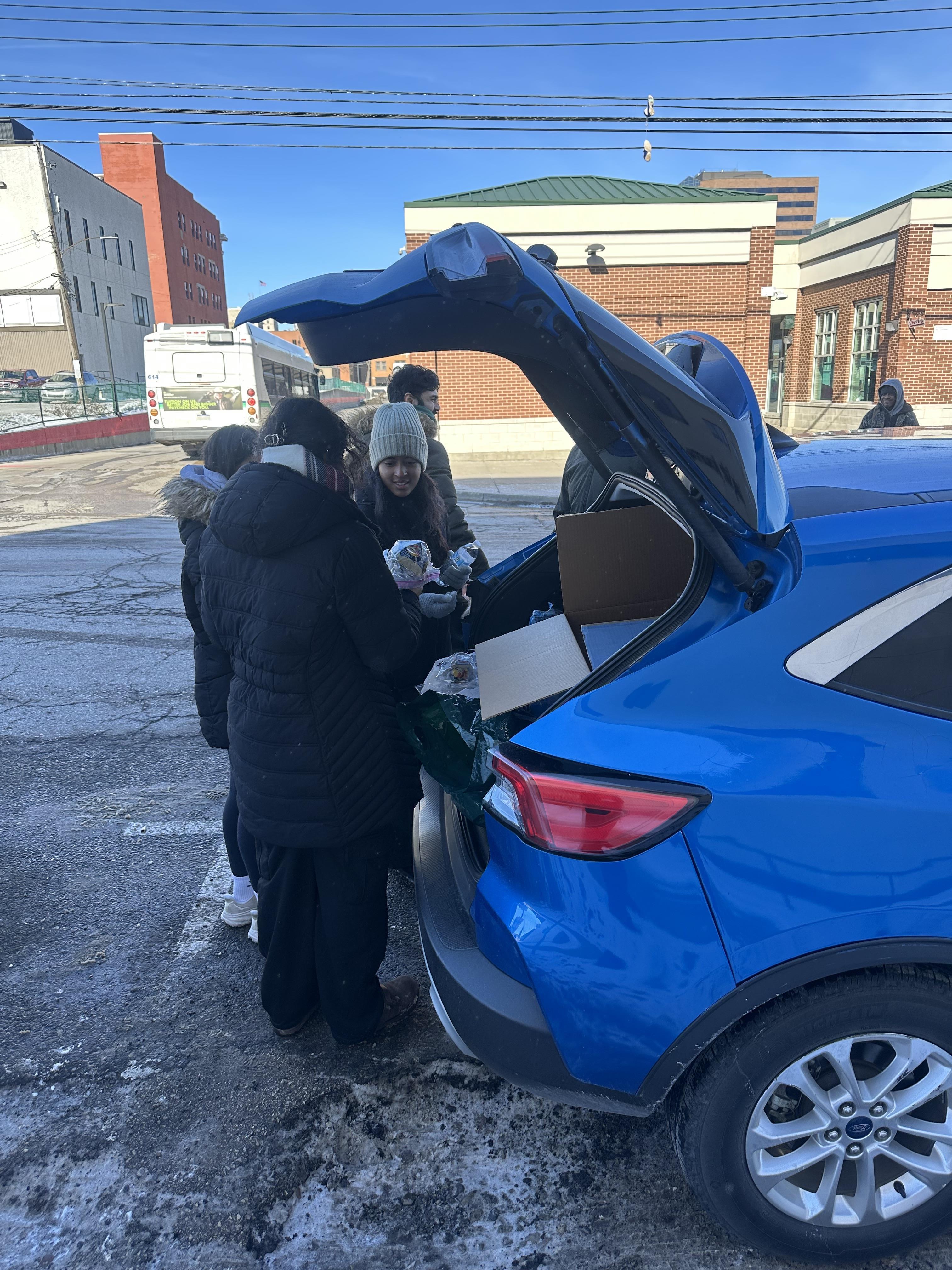
I used what little money I had from my student loan refund to buy blankets, gloves, scarves, socks, hand warmers — whatever I could. Some of my friends joined me and we also made sandwiches, because some of the people I met weren’t asking for more blankets — they just wanted food. While listening to their stories, I learned that many shelters close during the day, leaving residents to spend long hours outside until they can return at night. Though these policies often stem from funding constraints and organizational regulations, the result is extended exposure to the harsh weather for many experiencing homelessness. I couldn't ignore that. I had to do something. And the impact was written on their faces. The smile of someone clutching a fresh sandwich and warm gloves in -5-degree weather — it wasn’t just gratitude. It was a relief. One man said, “I didn’t think anyone even saw us out here.” That stuck with me. Because sometimes, it's not just about the items in the bag, it’s about what they represent: care, visibility, humanity. That day, I realized you don’t need millions of dollars or a fancy title to make change. You just need a heart — and a reason to act.
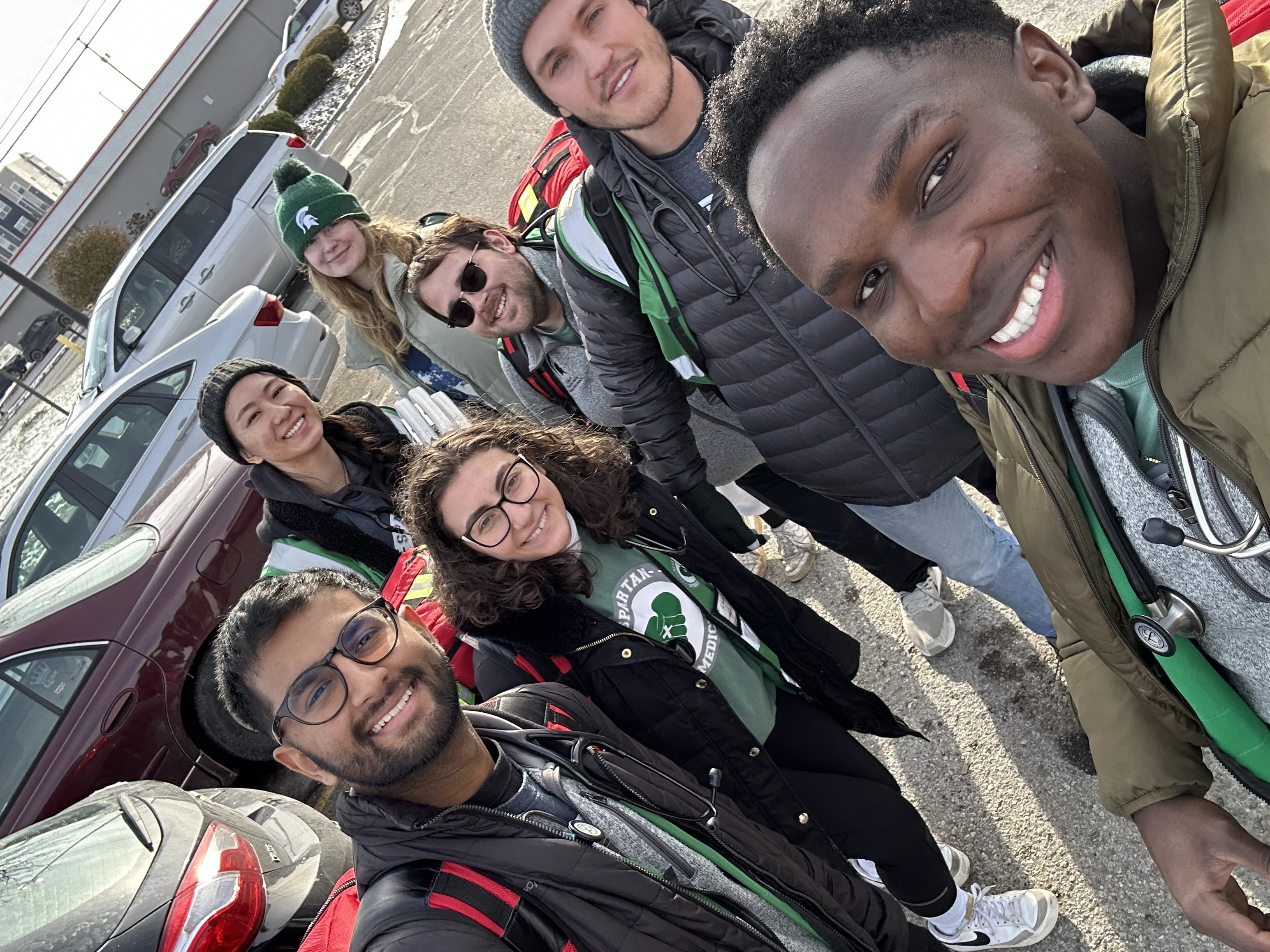
When I joined Spartan Street Medicine in the MSU College of Osteopathic Medicine, I met people whose stories opened my eyes to the resilience and complexity of those the healthcare system often overlooks. “John,” for example, had once been a medical assistant. He lost everything after one mistake. Yet the way he broke down his own symptoms, told me exactly what to look for—it humbled me. It reminded me that anyone, no matter how educated, can end up without a home.
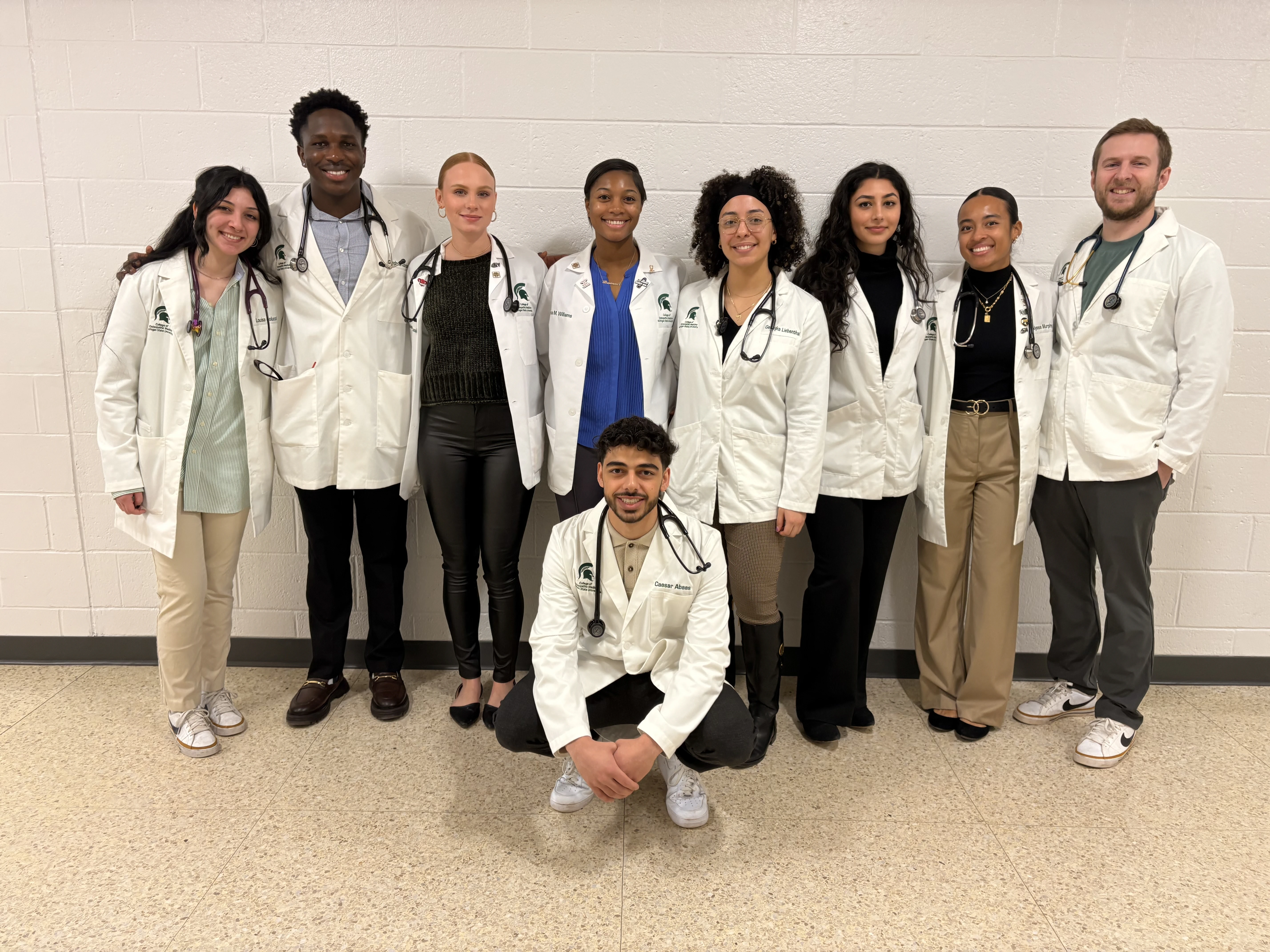
And “John” wasn’t the only one. There was another man with kidney disease who had been sleeping upright for weeks in an uncomfortable chair at a shelter. His legs were extremely swollen — a condition called pitting edema, where pressing into the skin leaves a dent — and the swelling had reached up to his thighs. If our attending hadn’t taken a closer look at his medical records and noticed how poorly his kidneys were functioning, he would've kept taking over-the-counter pain meds like NSAIDs and could have ended up in complete kidney failure. We replaced his NSAIDs with Tylenol that same night, and that one moment may have saved his kidneys.
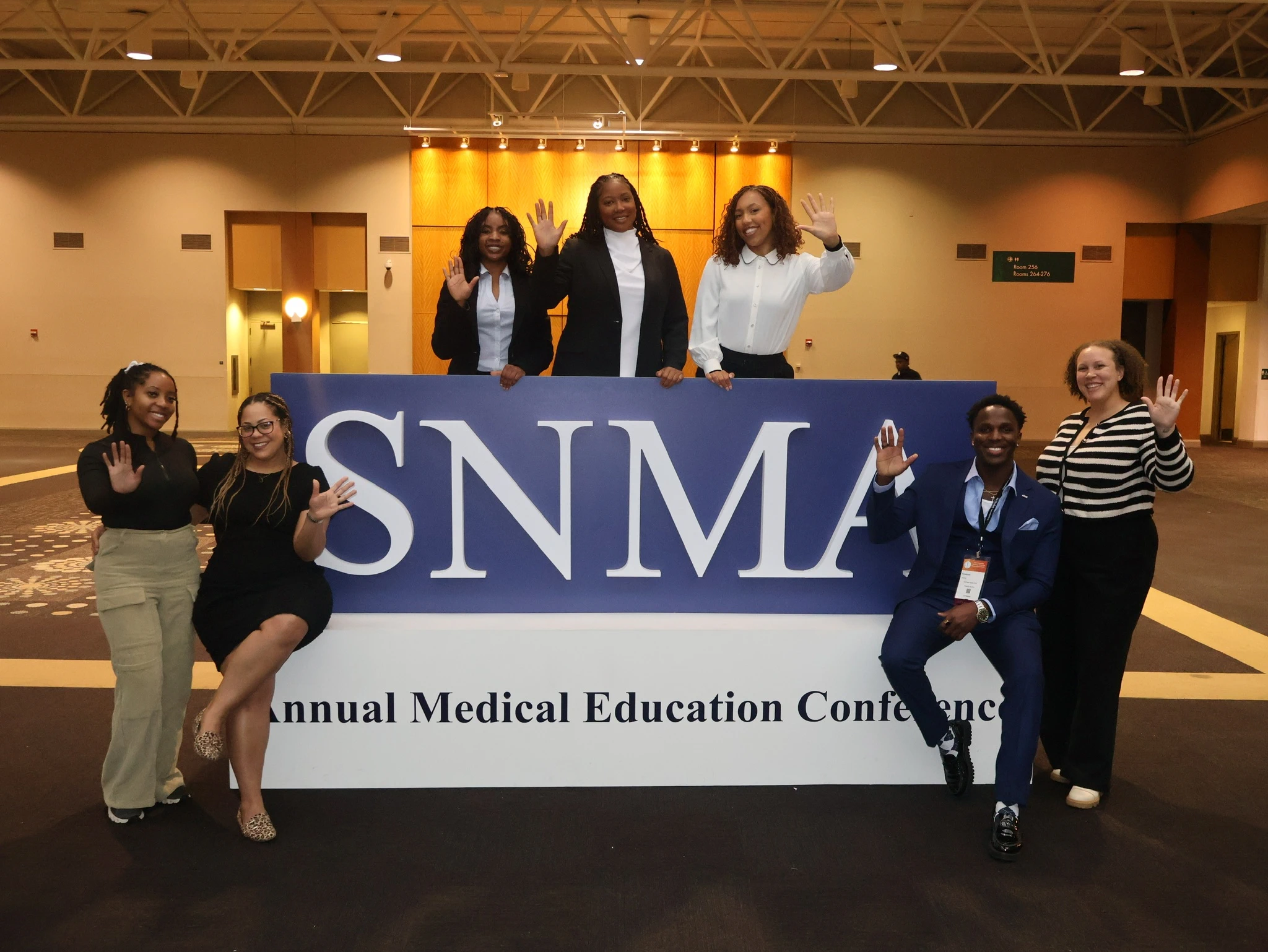
Moments like that remind me why I’m here. And why I stepped up to serve as the Student National Medical Association president. In a class of nearly 300, only a handful of us are Black. It raises questions —why are so few of us in the room? And how early does that gap start?
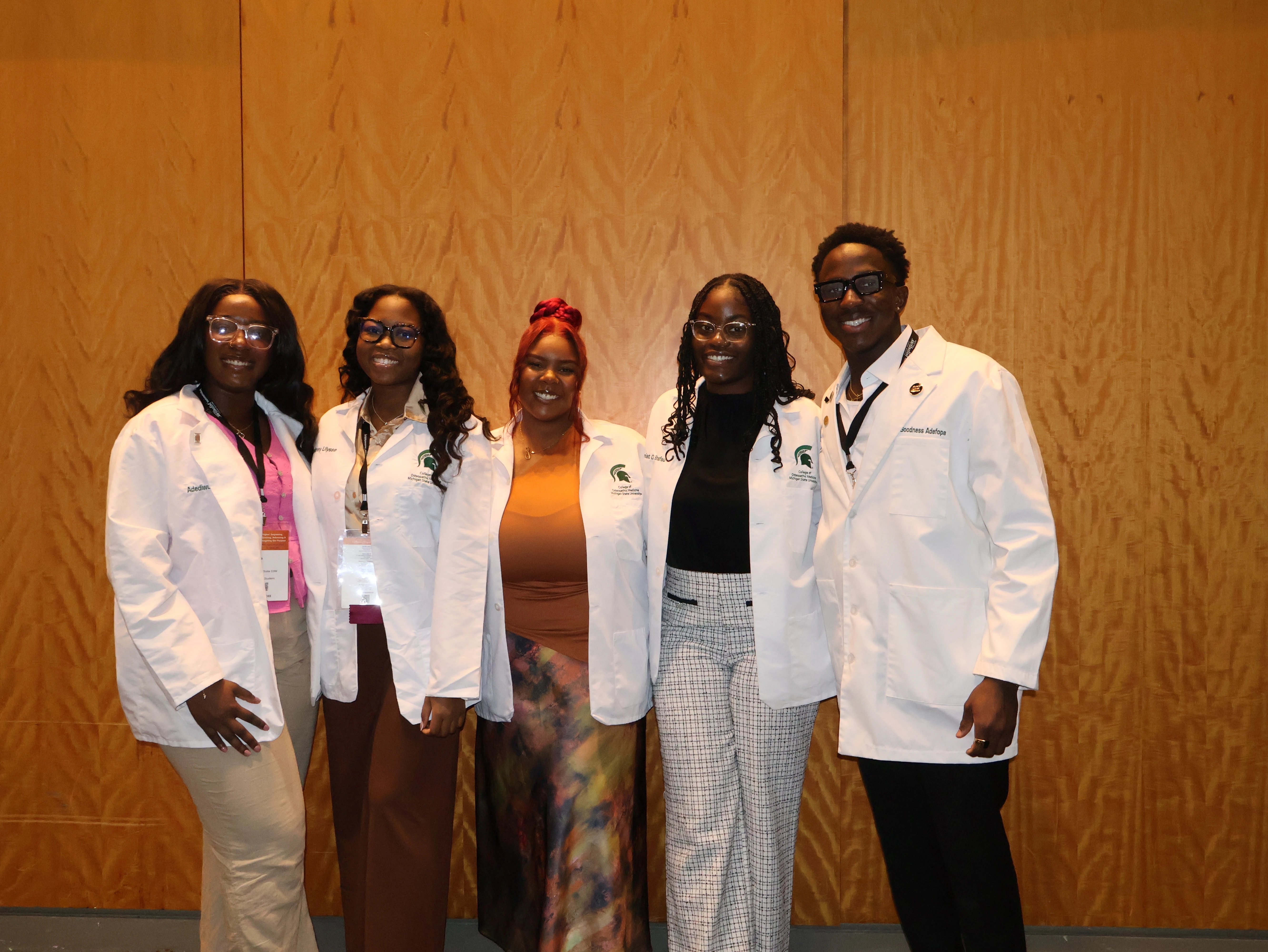
I think back to mentoring local students through our Pipeline Mentoring Institute – Youth Science Enrichment Program. I asked the boys what they wanted to be in the future, and most of them said, “6’7.” That was the dream. Not doctor. Not engineer. Just tall. Maybe be a gamer or YouTuber. And it wasn’t because they lacked intelligence; it was because they hadn’t seen someone in medicine who looked like them. Meanwhile, some of the other kids were already discussing acid reflux and pH changes. They were exposed early. They believed it was possible. It’s not about comparison, it’s about access — and representation.
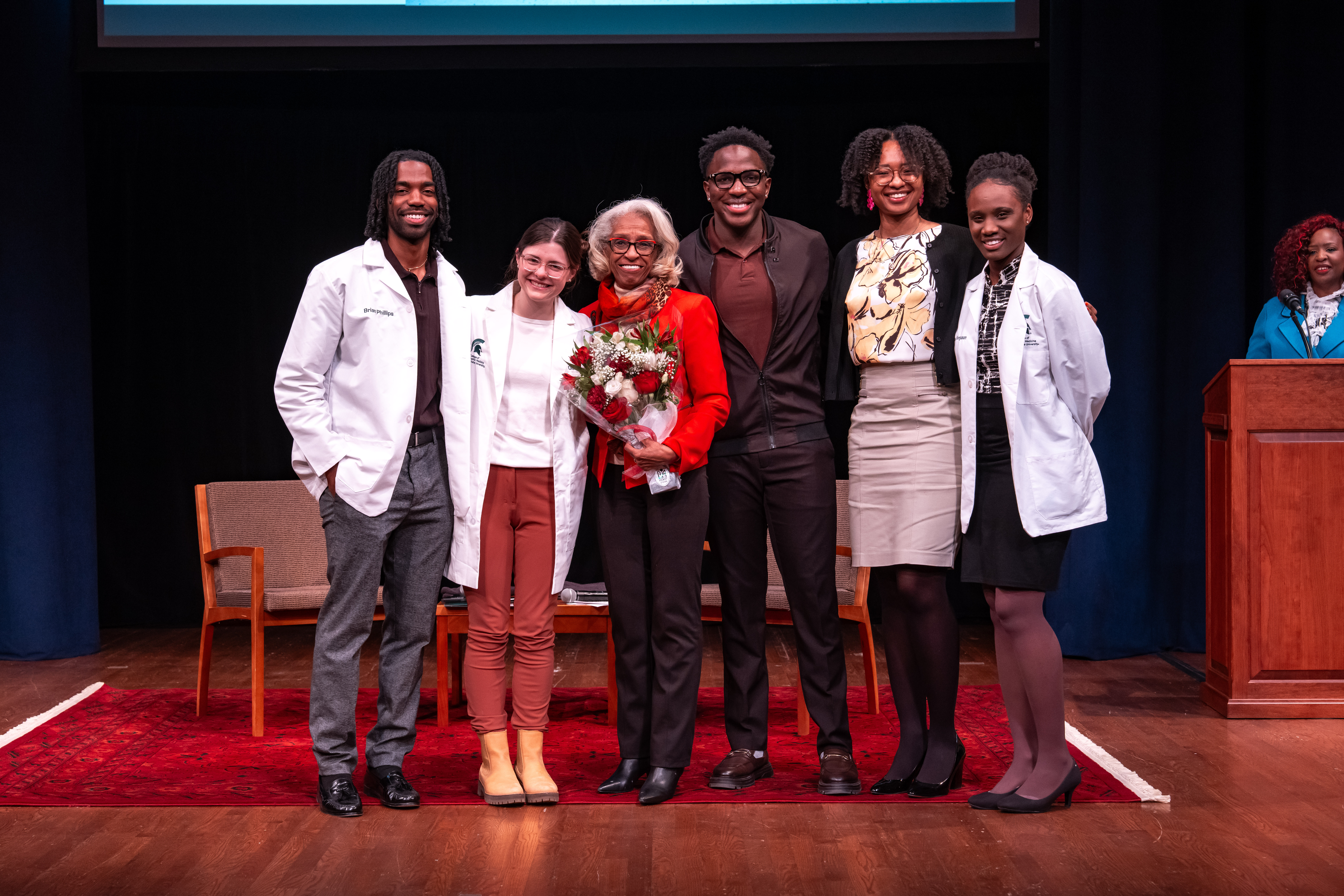
That’s why SNMA matters. We step in where the system falls short. We mentor. We show up. We let kids like “Jackson” know their dreams are valid — and within reach. Because if one of them sees their future in our white coat, that ripple effect can touch thousands of patients who will one day need someone who understands them, who gets them.
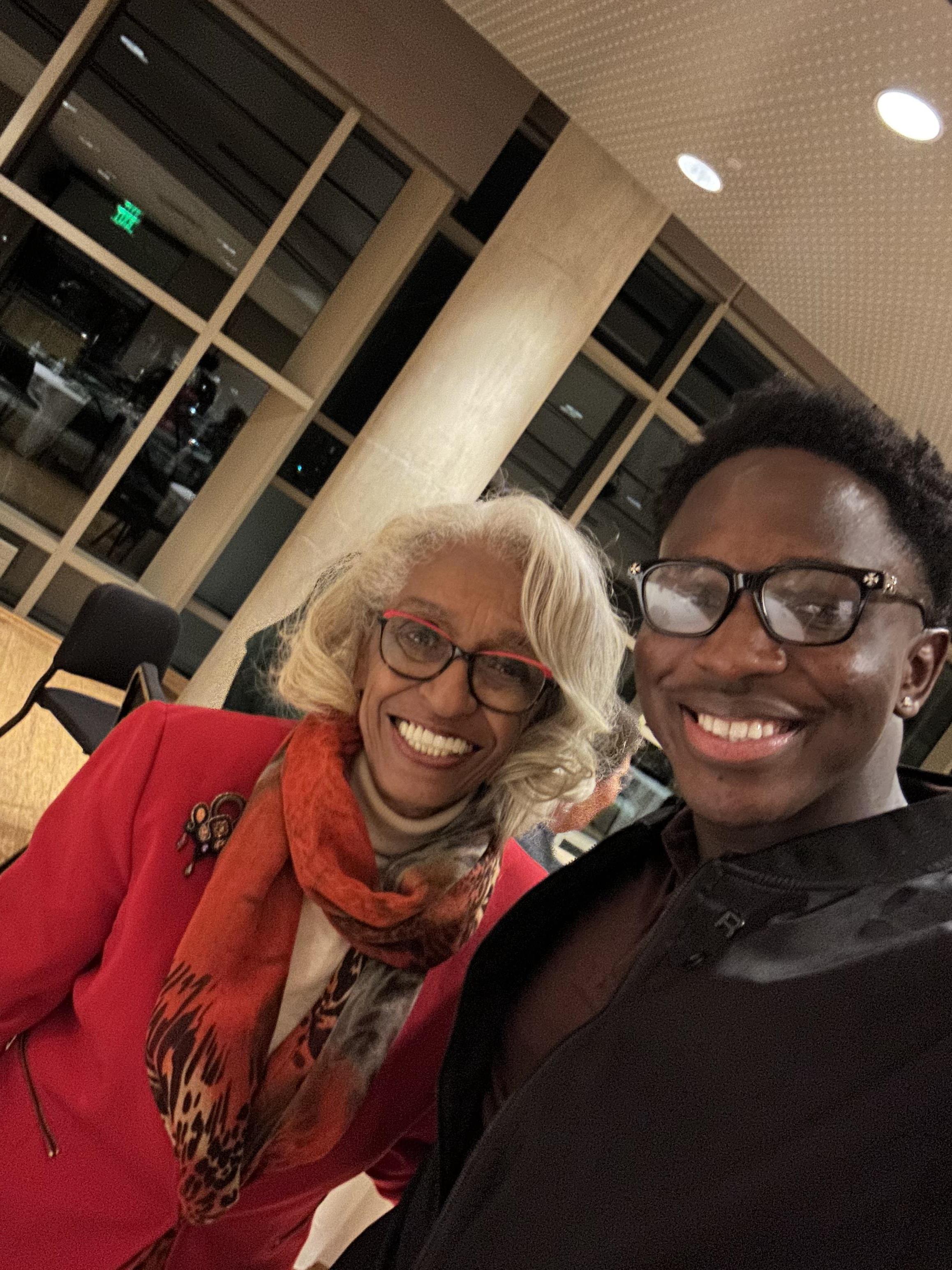
This is what drives me. Not just the science of medicine — but the people. The overlooked. The unheard. The ones standing in the cold, hoping someone will see them.
And I will keep walking for them.
